Many people fear that, due to their sweetness, watermelons might get eaten by ants.
In fact, ants aren’t capable of breaking through the tough skin of watermelons, even if they will feed from them if they get damaged or start to rot.
Garden with ants actually have more benefits than drawbacks, and they rarely cause direct damage to plants, like your watermelons.
However, this doesn’t mean that you will never see ants on your watermelon plants, just that they will be there for different reasons.
Ants could infest watermelon plants if they are attracted by the presence of aphids, or by the pollen of watermelon flowers.
The only ant species that can be more than a nuisance is the Red Fire ant, which not only stings but also feeds from young shoots.
- Related article: Ants and Plants
You will most likely want to kill these ants, but it’s also possible to use methods to deter them. Most times, it’s actually best to deal with aphids rather than ants, since they are the real danger.
Are Ants on Watermelon Plants a Problem?
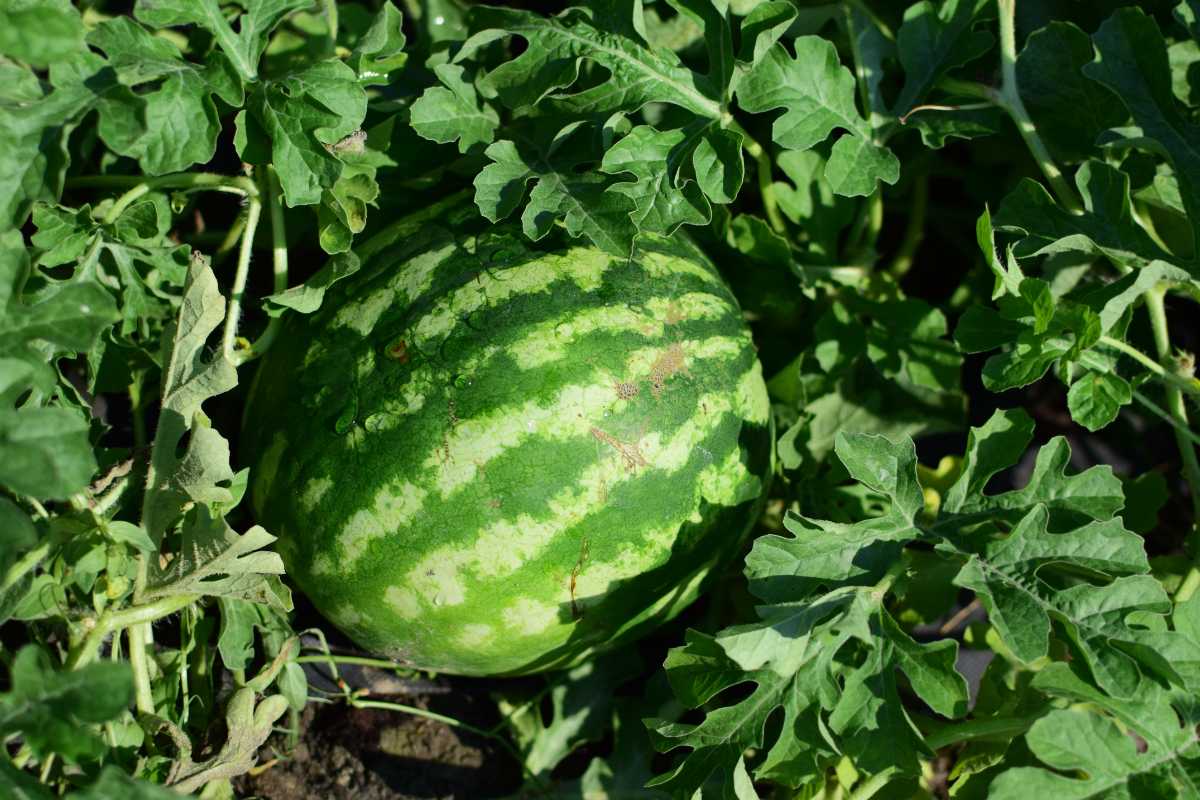
Ants can be a problem because of their love of aphids, which can infest many plants. These tiny insects gather on the underside of leaves and they suck the plants’ sap to survive.
Ants don’t eat the aphids themselves, just their excretions, which are called honeydew and are extremely sweet.
If they would limit themselves to feeding from the aphids on watermelon plants, it wouldn’t matter for you or your plants.
The problem is that ants protect their sources of food and actively work to make the aphid population grow. Essentially, they farm these tiny insects, much like we do with our domestic animals.
In this way, aphids cause much more damage than they would be able to without the help of ants. They weaken watermelon plants and can infect them with diseases, resulting to yellowing of leaves.
The excess honeydew that remains on the leaves can also attract microorganisms that form a black mold, which can hinder the plant’s ability to photosynthesize.
Ants can also cause damage by themselves, even if this is usually quite minor.
For example, Fire Ants feed from certain parts of the plant and the seeds can sometimes be carried away to their nests to be eaten.
The galleries ants build in the soil can, in rare cases, be a problem rather than an advantage. If their mound is located too close to your watermelon plants, the tunnels could limit the roots’ ability to grow.
Will Ants Eat Watermelon Plants?
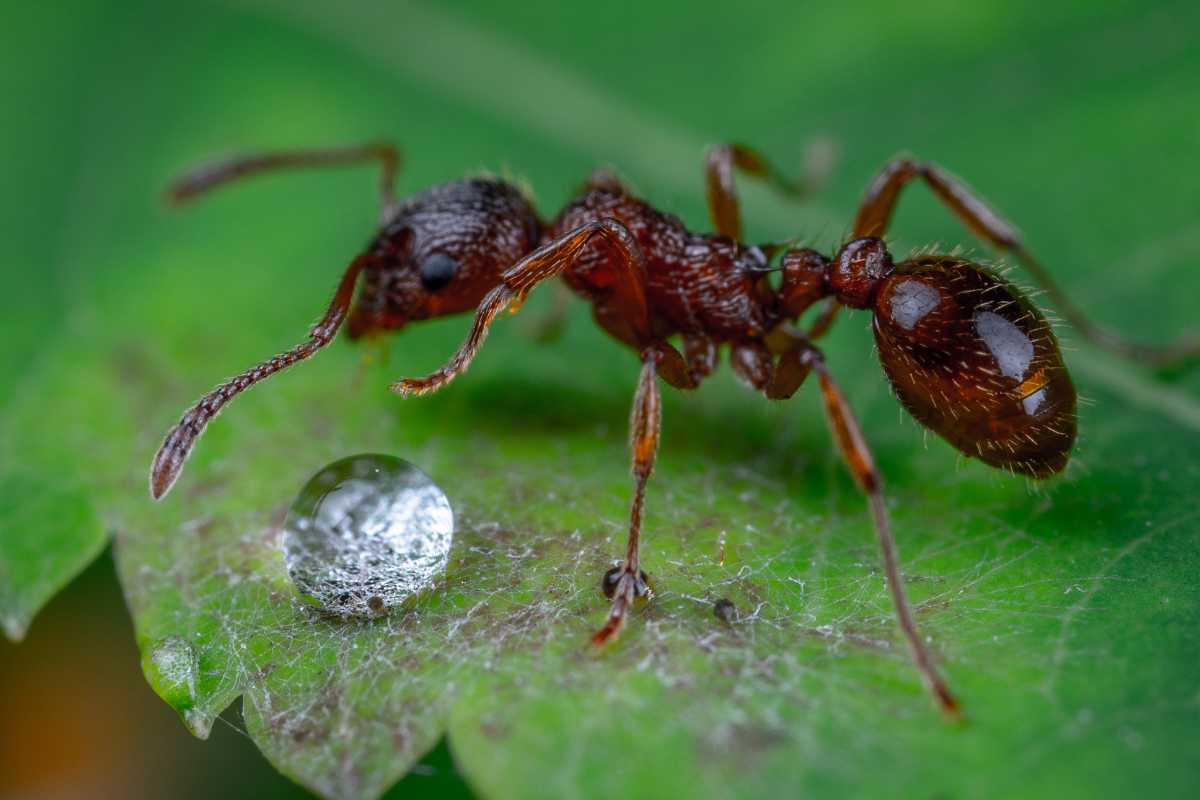
Ants don’t normally eat watermelon plants as they usually feed from plants in general only if they have been damaged by other pests or the weather.
It’s a common mistake to see garden with ants crawling on sick plants, and assume they are responsible, when in fact, they are merely taking advantage. Ants are usually quite beneficial, in fact.
The only issues and plant damage are caused by Red Fire Ants, which do sometimes feed on the most tender parts of watermelon plants.
You should only worry about this when the plants are very young though, as in other cases, Red Ants don’t cause enough damage to considerably harm the plant.
The tender shoots should be kept in a controlled situation for the first few weeks to avoid them being killed off by fire ants.
The only part of the watermelon plant that ordinary ants eat is the pollen. Fortunately, they eat such small amounts of it that the plant doesn’t even notice.
If you see wilted flowers crawling with ants, again, they are not the problem. Instead of dealing with them, it would be best to investigate the real source of the disease.
How Can Ants Help Watermelon Plants?
Ants can have many advantages for watermelon plants, and the garden in general. Usually, they are considered beneficial insects, rather than pests.
Here are the main benefits they bring to your plants:
1. Pest Control
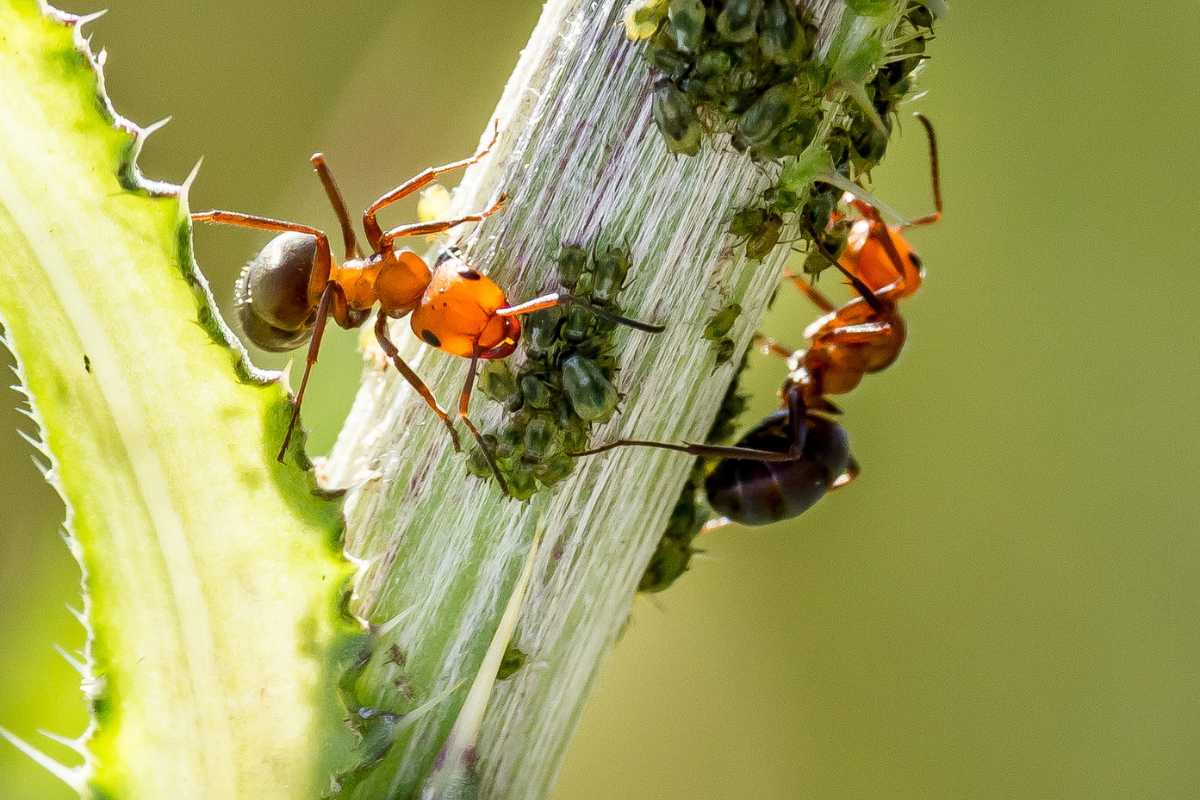
Ants help you to keep the population of variety of garden pests that are harmful under control. By eating their eggs and larvae, they ensure that your watermelon plants will suffer less damage.
No matter what types of garden pests you have, it’s always helpful to have them help you out in your garden as it allows you to use fewer chemical methods that could harm your plants and the environment.
2. Soil Aeration
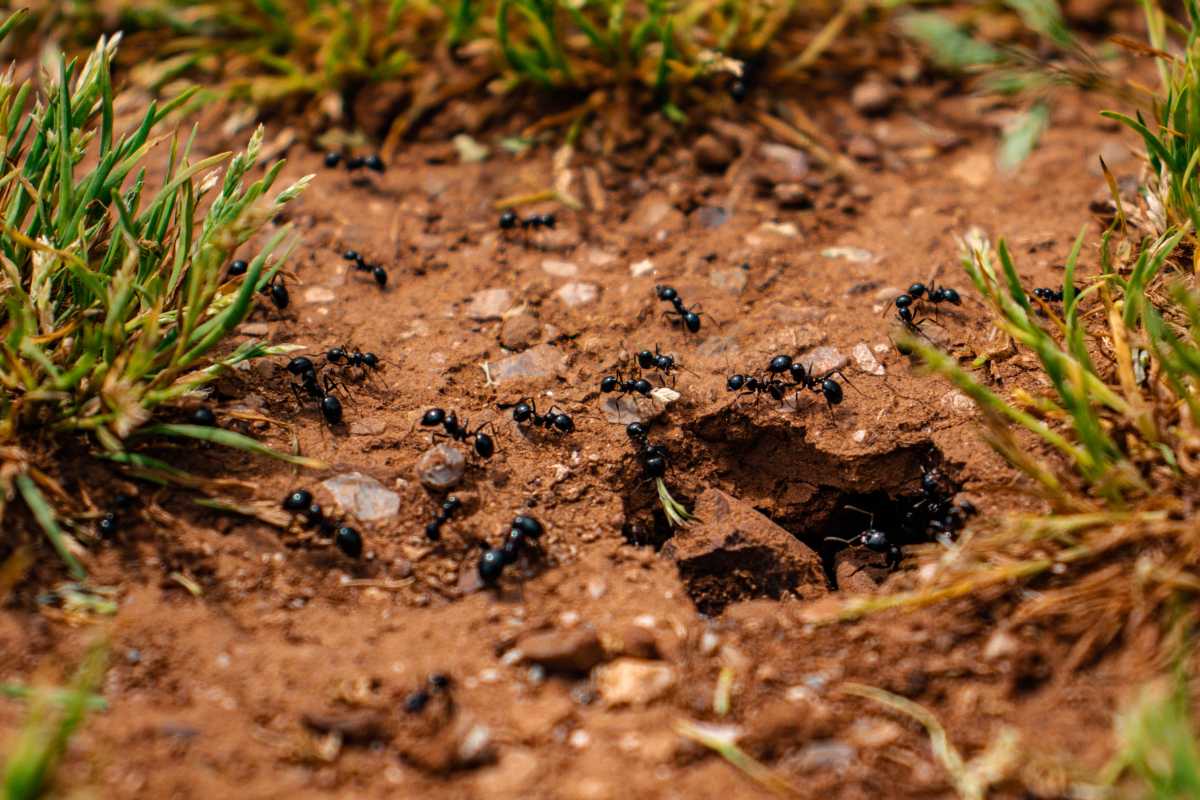
Ants help to improve the soil by increasing the flow of oxygen through its different layers. They accomplish this by digging tunnels to build their nests.
Your watermelon plants will ultimately benefit as they will have easier access to air and water.
3. Decomposition of Organic Waste
Ants act as decomposers, as they take advantage of any easy source of food. This is why you will see a swarm of ants on organic waste, dead leaves, and other dead animals.
In a matter of days, organic matter is broken down and stored in ants’ nests to act as a food supply.
Decomposition is a vital natural process that returns essential nutrients to the soil, aiding in plant growth and soil health.
4. Pollination
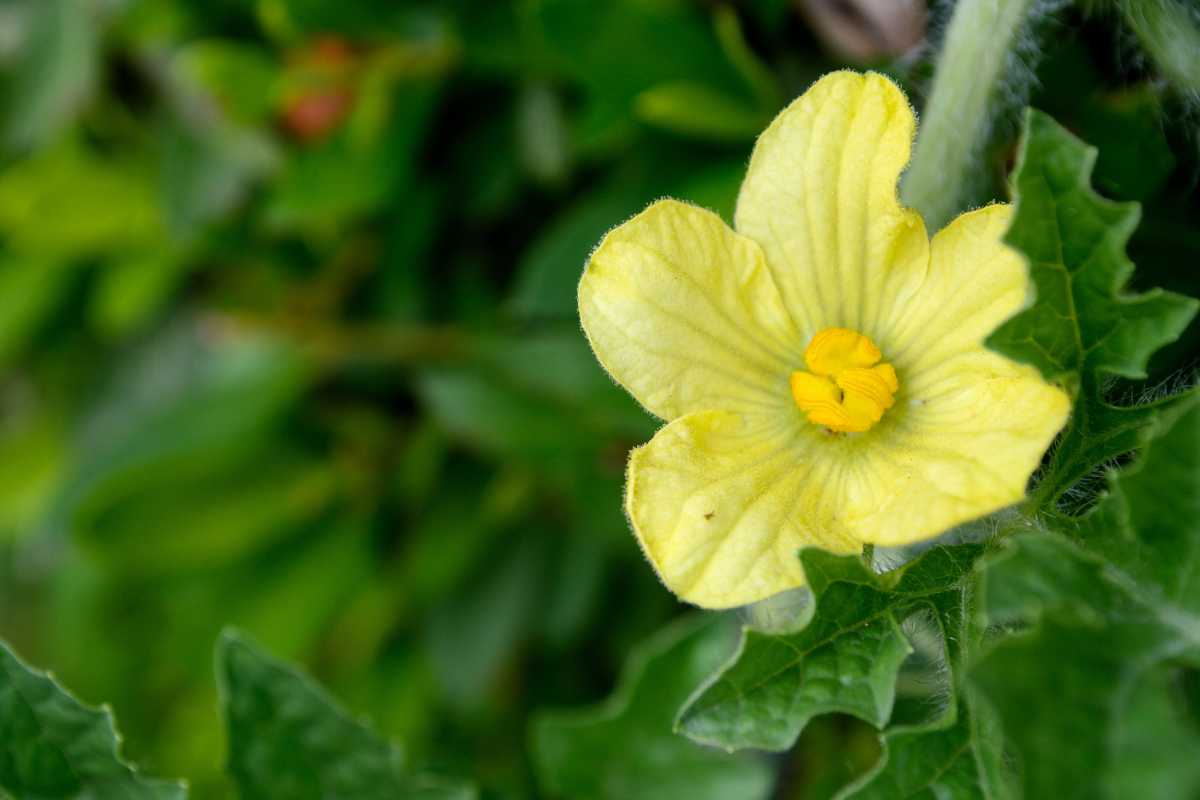
Ants can help pollinate watermelon flowers.
When feeding from their pollen, ants also aid in natural pollination by carrying pollen to the next foliage they visit. The same is true for other natural pollinators like bees.
Best Ways to Keep Ants Away from Watermelon Plants
If you want to keep ants away from your watermelon plants, you can choose between methods that repel them or kill them off.
The main aspect to consider is that Black Ants are most often very beneficial for the garden, watermelon plants included.
Red Ants can be a nuisance, but more for you than for the plants. It’s true that they can cause some minor damages, but these are often negligible.
Some people prefer to get rid of them anyway, mostly to avoid getting stung while gardening.
If you decide on this course of action, you can try these natural methods that are cheap and also harmless for the environment:
1. Spray Aphids
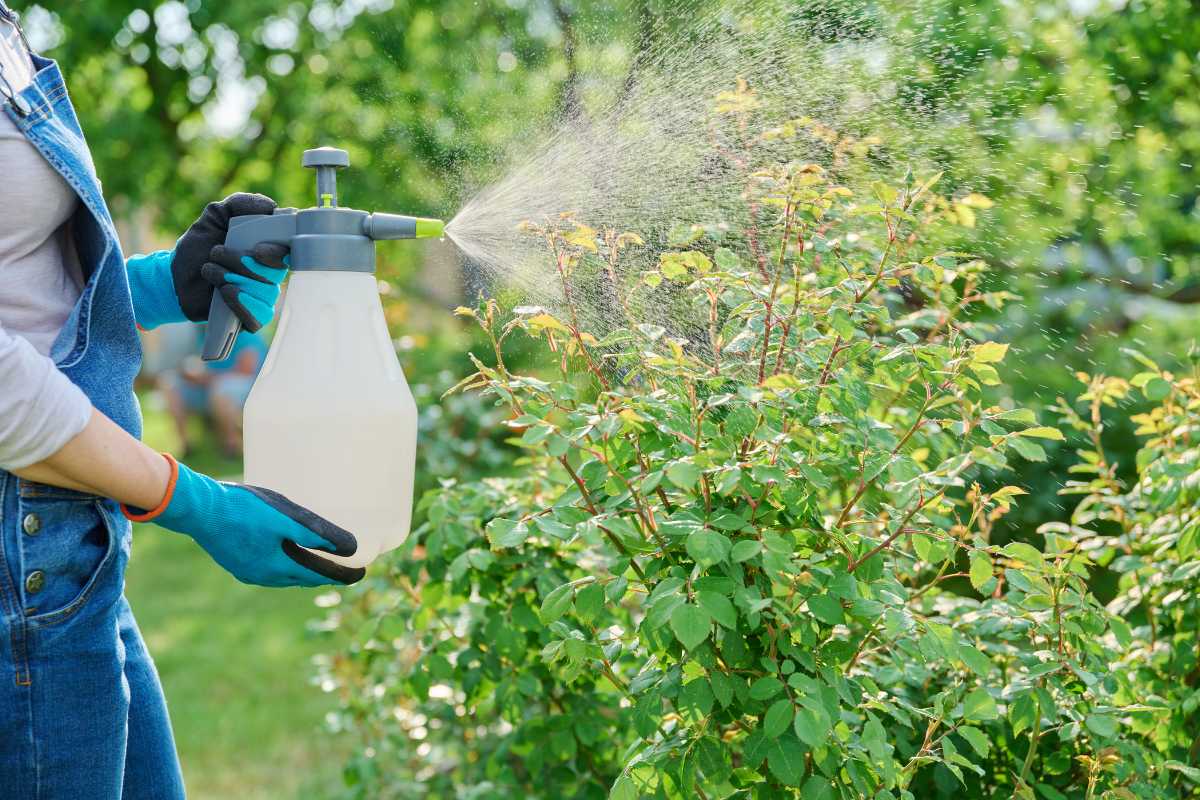
Aphids should be dealt with first if you notice black ants on your watermelon plants.
You can try spraying them with the following:
- Horticultural oil
- All-purpose garden spray
- Insecticidal soap spray
- Water with dish soap
This method only works if the substance gets in direct contact with the aphids, so it will need to be repeated more than once.
You can even blast a plain, stream of water to your plants by using a hose or spray bottle to rid them of aphids.
2. Biological Control
A well-known insect that can get rid of melon aphids is the ladybug. Using ladybugs as pest control is preferred by many because these bugs are readily available and easy to store.
You can also try these other insects:
- Green lacewings
- Hoverflies
- Midges
- Damsel bugs
- Soldier beetles
- Blister beetles
Be wary of their more aggressive counterparts though as they can be such a nuisance. Also, too many of them can cause other sorts of problems.
3. Repel Ants
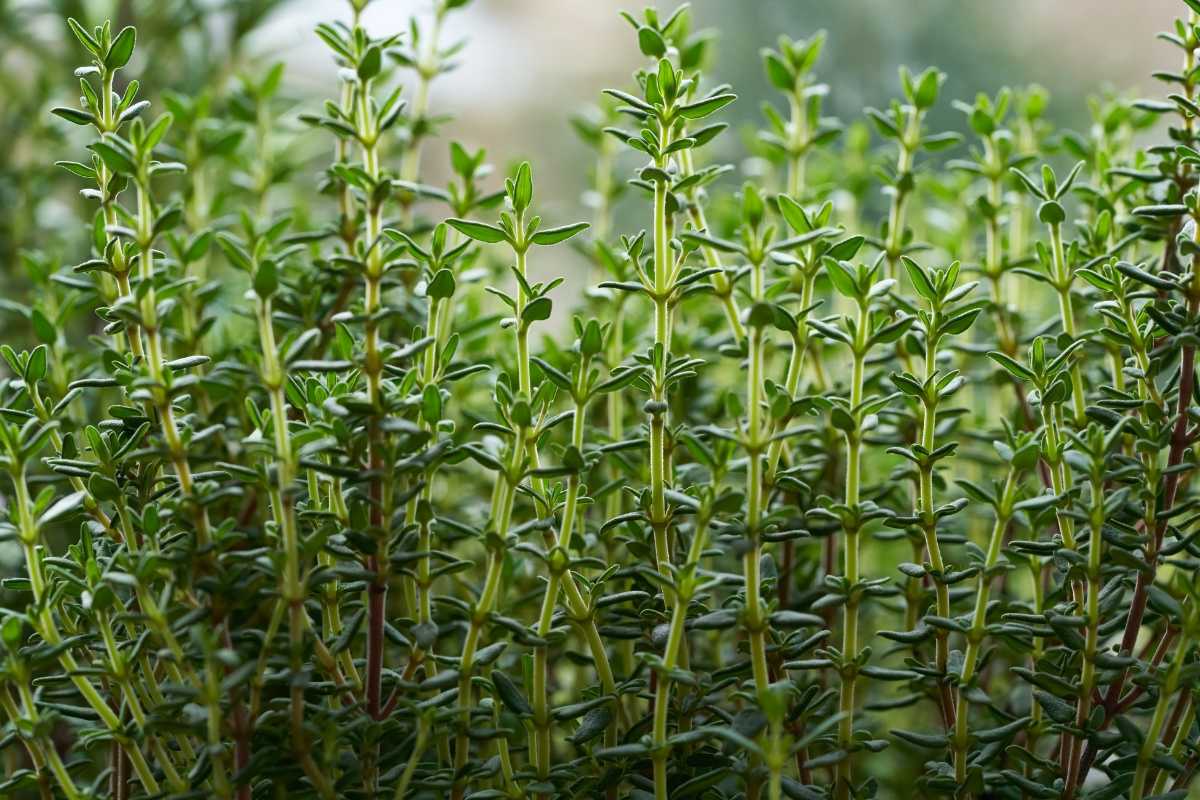
To deal with ants directly, the first thing you can do is deter them. While this may not solve your problem long-term, it can allow you to manage ant populations in your garden better.
You can plant one of these to sway ants away:
- Thyme
- Rosemary
- Mint
- Lavender
- Catnip
- Tansy
- Chili plants
Ants’ sense of smell is very strong, so they are easily disturbed by pungent odors and stay away.
This is also why sprinkling spices around your watermelon plants can accomplish the same. The ones they dislike the most are cinnamon, cayenne pepper, and curry.
Read more about Plants to Keep Ants Out of Garden.
4. Kill Ants
To dispose of ants completely, you can pour boiling, hot water into their nest or mounds. Remember to time this correctly and do it when the ants are inside their nest. This will allow you to kill as many of them as possible.
You can also make a borax and sugar mixture. Borax is poisonous to ants and sweets, such as honey, will mask it. Place some of it along their trails, and they will carry it back to their nest killing the queen and ending the colony.
Diatomaceous earth also works, but only with direct contact. This takes a while to work, but once an ant gets in contact with this fine powder, it will eventually die.
All of these are natural methods that you can employ which won’t damage plants or other animals.
Final Thoughts on Ants on Watermelon Plants
Ants are in the environment for a reason. They help keep the soil aerated, act as a natural pollinator between plants, and also aid in keeping other harmful insects at bay.
However, too many of them are also not good. Especially when they infest your garden and farm aphids.
If their numbers start getting too alarming, it might be time to take some of the actions that we listed above to rid your space of them.
You will be surprised to know that a simple blast of water on plants, the use of biological control, or diatomaceous earth can do wonders.
All of these methods are natural and will not damage other plants or animals.
Read these articles for more information about ants on watermelon plants:
- I Have Ants in My Vegetable Garden
- Do Ants Harm Zucchini Plants
- Are Ants Bad for Squash Plants
- How to Get Rid of Ants on My Sunflowers
- Do Ants Harm Corn Plants
- Are Ants Bad for Potato Plants
Sources:

